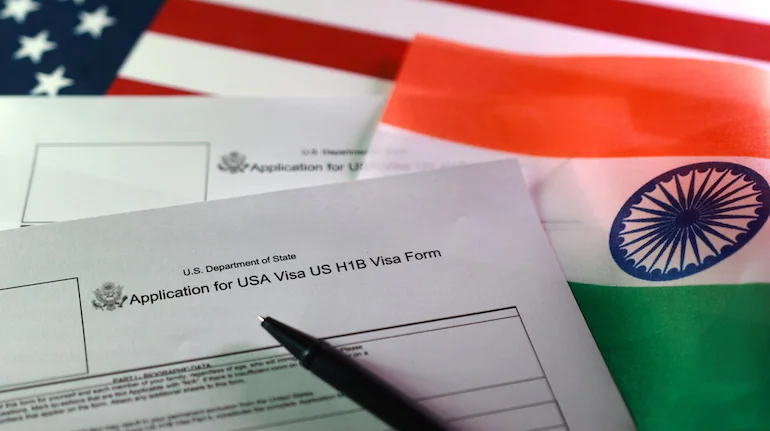Canada Poised to Benefit as US H-1B Visa Fee Hike Drives Tech Talent North
A significant increase in the U.S. H-1B visa application fee, set to take effect on September 21, 2025, is positioning Canada as an attractive alternative for skilled tech workers. The policy change, designed to prioritize American labor, could lead to a talent migration northward, with Canadian officials and industry leaders actively seeking to capitalize on the opportunity.
The Impact of the US Visa Fee Hike
The new $100,000 application fee, a substantial increase from the previous average, is expected to disproportionately affect smaller firms and startups that rely on foreign expertise. Immigration lawyers and tech executives argue this could exacerbate existing divides in the U.S. job market, potentially forcing companies to either invest heavily in domestic talent or consider relocating operations. The fee effectively aligns with the annual salary of many typical visa applicants.
In contrast, Canada's Tech Talent Strategy, which has been updated in recent years, offers streamlined pathways such as the Global Talent Stream, promising work permit processing in as little as two weeks for high-skilled roles in tech, engineering, and digital fields.
Opportunities for Canada Amidst US Restrictions
Growing sentiment among tech professionals, reflected in posts on X (formerly Twitter), indicates that FAANG managers are already facilitating moves to Canadian offices for employees on U.S. OPT visas to avoid the new fees. This includes redirecting U.S. computer science graduates from reputable schools north. This aligns with data from Immigration.ca, suggesting a reshaping of labor markets, potentially boosting Canada’s tech hubs in Toronto and Vancouver, where companies like Amazon and Microsoft already have a significant presence.
Canada's immigration minister has tabled the 2025–2027 Immigration Levels Plan, targeting 500,000 permanent residents annually, with a focus on skilled workers to address labor gaps in construction and tech, as reported by Canada.ca. However, reports from CBC News indicate that public support for high immigration levels has waned due to strain on infrastructure.
Challenges Within the Canadian Immigration System
Discussions on Reddit's r/technology reveal frustrations among tech workers considering the move to Canada. While programs like the dedicated stream for U.S. visa holders offer a path to relocation without job offers, issues such as high living costs and slower wage growth compared to the U.S. remain a concern. Some users have pointed out that Canadian tech salaries can lag behind American counterparts by as much as $35,000 CAD annually. A similar sentiment was expressed in an X post from 2024, which speaks of Canadian talent fleeing south.
Despite these challenges, Canada held its first 2025 Express Entry draw for trade occupations, signaling a broader push for skilled inflows, according to Croyez Immigration. However, experts caution that without addressing internal bottlenecks, such as recent tightening of international student policies detailed in Immigration2Canada, Canada risks squandering this advantage.
Strategic Shifts by Major Tech Firms
Major tech firms such as Alphabet and Microsoft, with significant Canadian operations, are ramping up recruitment, leveraging programs that allow digital nomads to work remotely for up to six months without extensive paperwork. A 2023 X post from immigration consultant Olú highlighted similar pathways, including special streams for H-1B holders and families, which have seen renewed interest after the fee hike. This shift could accelerate Canada’s tech sector growth.
Long-Term Implications and Global Talent Realignment
While Canada's citizenship uptake fell in the first half of 2025, the country is on track to surpass permanent resident targets, according to Canada Career Site. For U.S.-based workers, the decision involves weighing visa stability against quality-of-life factors like universal healthcare. Historical data from Migration Policy Institute suggests Canada has been explicitly targeting U.S. visa holders since 2023. Whether this translates to sustained economic gains or merely temporary influxes amid ongoing global uncertainties remains to be seen.
Speaking in New York, Prime Minister Mark Carney highlighted that US visa changes for skilled workers may at least help Canada retain some of its talent, according to BBC.
"I understand you're changing your visa policy," he added. "Maybe we can hang on to one or two of them."
As the U.S. tightens its borders, Canada's proactive stance offers a compelling narrative for displaced talent. The Rural and Northern Immigration Pilot also offers opportunities for sectors including tech.
 Visit the website
Visit the website






